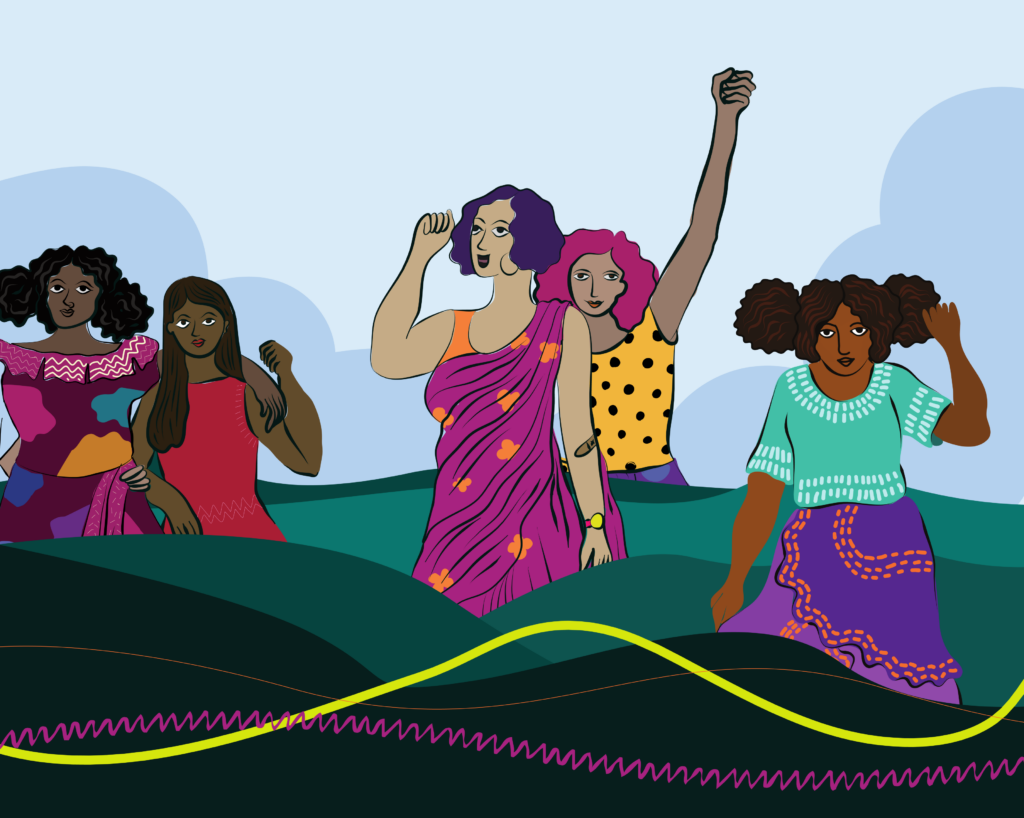Funding feminist movements to fight corruption
Members of the Feminist Anti-Corruption Advisory group and Global Fund for Women staff at the inaugural convening in Armenia.
For the past 35+ years, Global Fund for Women has funded grassroots feminist movements combatting oppression in nearly every region of the world—from abortion rights in West Africa to climate justice in the Caribbean. And where there is oppression, there is corruption—predatory systems designed to benefit those already in power at the expense of vulnerable populations. We see it when our grantees have to pay a bribe to open a bank account, when a survivor of violence gets no redress because she is poor, and in a million other small and large injustices.
As it is often dependent on power imbalances, corruption disproportionately impacts those experiencing intersecting forms of oppression—including women, girls, LGBTQIA groups, refugees, Afro-descendants, people with disabilities, and many other marginalized communities. Surprisingly, the United Nations Convention Against Corruption fails to even mention gender. Global anti-corruption agencies and funders rarely listen to those most impacted by corruption in their daily lives, so the solutions they espouse fall short.
In February 2022, Global Fund for Women convened an Advisory Group of eight feminist leaders to learn with us about corruption, its impact on marginalized women, and what a feminist response could be. After two years of Zoom meetings, the Advisory Group met in person for the first time in Armenia this March. Their purpose: to award funding to organizations doing the most important anti-corruption work in their countries.
Sofia Peters, our Anti-Corruption Learning Fellow, facilitated the meeting. “Everyone was very nervous about their role as decision-makers. As the days continued, they started to feel more comfortable and empowered. There were some difficult conversations as they chose who to fund, but they stayed in the room and engaged. We could not have achieved this on Zoom, we needed to be in person to give our whole attention to this process.”
Cesangari Lopez, our Senior Officer in Learning Analytics, joined to support the meeting. “These eight people were from different countries: Syria, Uganda, Kenya, Nepal, Armenia, Guatemala and Mexico. They have different communities they are accountable to: adolescent girls, survivors of violence, women with disabilities, trans women, to name a few. They immediately understood how to be transparent and disclose their allegiances, and used their power carefully. As they built trust with one another, they understood that they were all fighting the same fight. They started being accountable to each other - explaining why they were voting, asking questions of each other to understand the context. At the end, they were all tuned into how each grant affected every community, asking, ‘But does this organization include trans women? Young people?’”
Out of 500 initial expressions of interest, the Advisory Group chose 21 grantees. Sofia reflected, “If we had awarded the grants internally at Global Fund for Women, we may have just chosen the best written proposals. But our Advisory Group knew the context in their countries, and what types of corruption were most dominant, and what groups were doing the essential work. For example, in Uganda a lot of corruption happens within the tourism sector; we could not have known how important it was to fund a group addressing that.”
In a year, the Advisory Group will gather again, this time with all their grantees as well. This community will reflect together on what they have learned about corruption and how best to involve marginalized groups in anti-corruption work and data collection. We will share our learnings with UN agencies and funders, and collectively build an anti-corruption agenda that includes their experiences. In addition to this impact on the global agenda, we can’t wait to see what new relationships across regions will develop from this future gathering.


